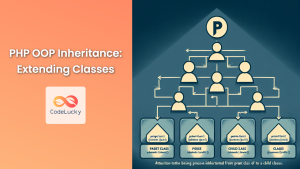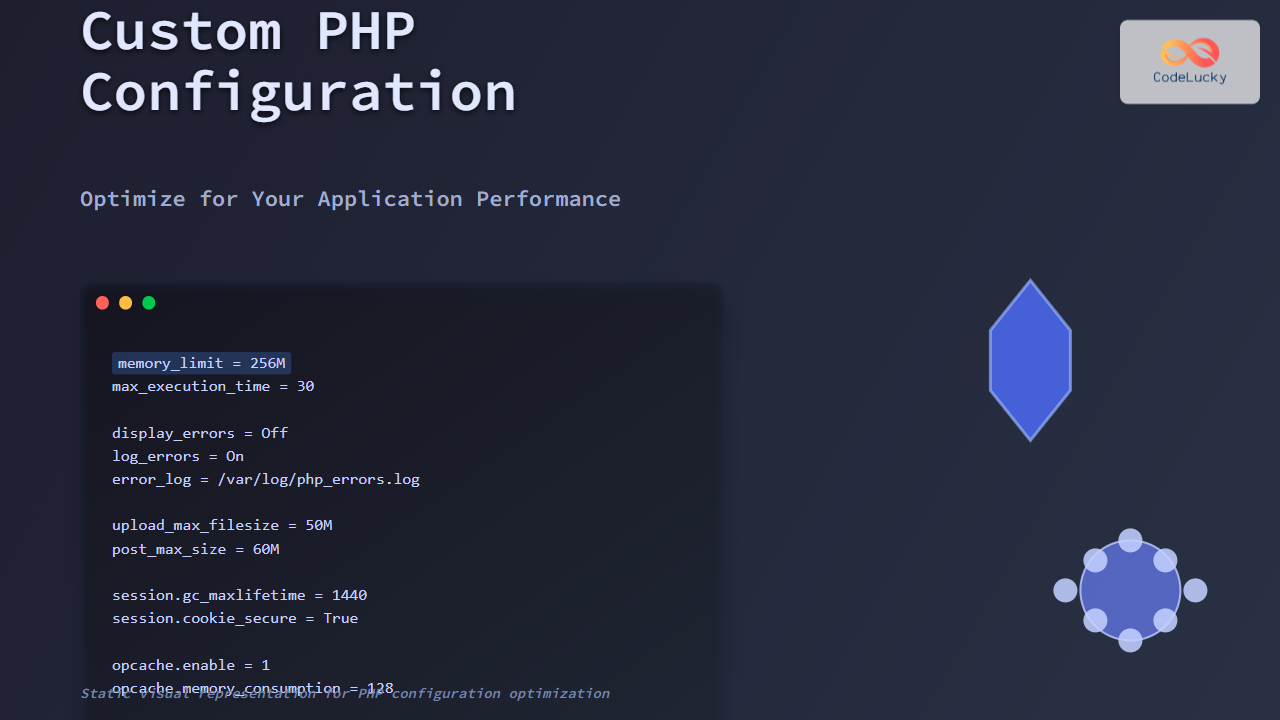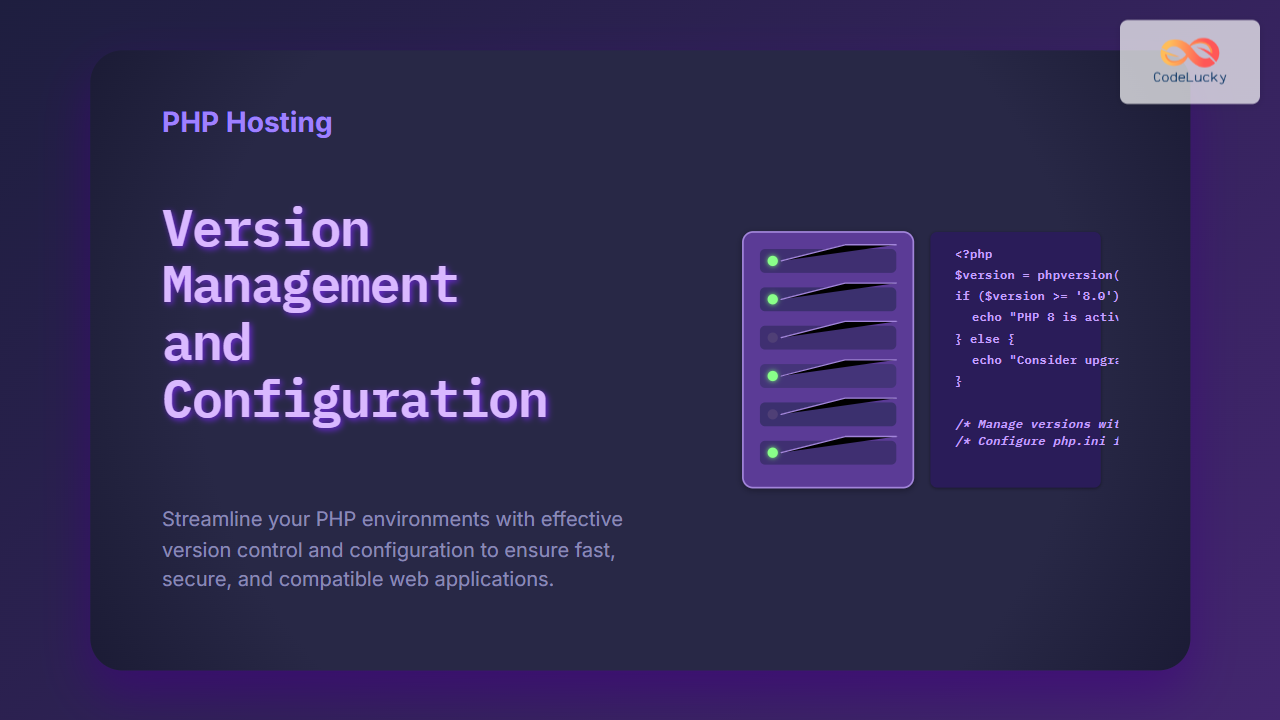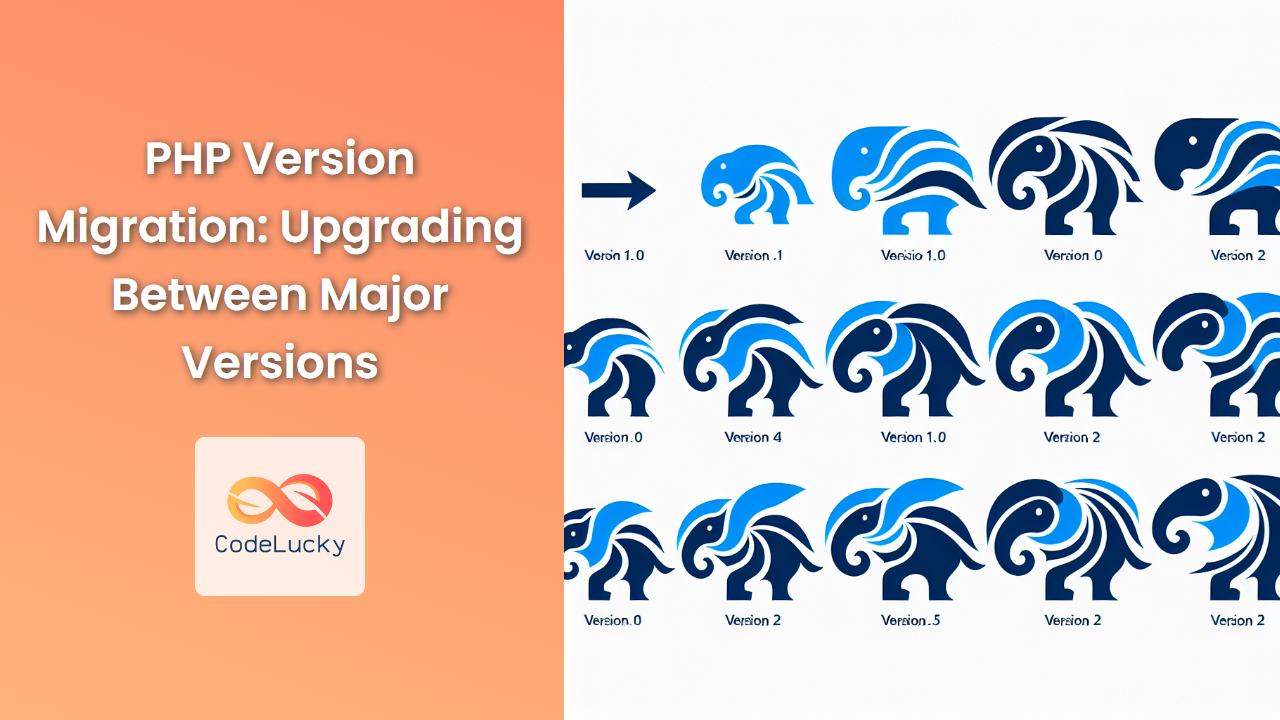PHP, the versatile server-side scripting language, offers a powerful set of features known as "magic methods." These special methods allow developers to create more flexible and dynamic classes, enhancing object-oriented programming capabilities. In this comprehensive guide, we'll dive deep into two crucial aspects of magic methods: overloading and object serialization.
Understanding PHP Magic Methods
Magic methods in PHP are special functions that are automatically called in specific situations. They always start with a double underscore (__) and provide a way to intercept and handle various events in an object's lifecycle.
🔮 Fun Fact: The term "magic methods" comes from the idea that these methods seem to work like magic, performing actions behind the scenes without explicit calls.
Let's explore some of the most commonly used magic methods for overloading and object serialization.
Overloading with Magic Methods
Overloading in PHP allows you to dynamically create properties and methods. It's important to note that this differs from traditional method overloading in languages like Java or C++. In PHP, overloading refers to the ability to intercept calls to properties or methods that don't exist.
Property Overloading
PHP provides four magic methods for property overloading:
- __get($name)
- __set($name, $value)
- __isset($name)
- __unset($name)
Let's look at each of these with practical examples.
__get() Method
The __get() method is called when accessing properties that are not accessible or do not exist.
class User {
private $data = [];
public function __get($name) {
if (array_key_exists($name, $this->data)) {
return $this->data[$name];
}
return null;
}
}
$user = new User();
echo $user->name; // Outputs: null
In this example, when we try to access the non-existent 'name' property, the __get() method is called, returning null as the property doesn't exist in the $data array.
__set() Method
The __set() method is invoked when assigning a value to properties that are not accessible or do not exist.
class User {
private $data = [];
public function __set($name, $value) {
$this->data[$name] = $value;
}
public function __get($name) {
return $this->data[$name] ?? null;
}
}
$user = new User();
$user->name = "John Doe";
echo $user->name; // Outputs: John Doe
Here, when we assign a value to the 'name' property, set() is called, storing the value in the $data array. The get() method then retrieves this value when we access the property.
__isset() Method
The __isset() method is triggered when isset() or empty() is used on properties that are not accessible or do not exist.
class User {
private $data = [];
public function __set($name, $value) {
$this->data[$name] = $value;
}
public function __isset($name) {
return isset($this->data[$name]);
}
}
$user = new User();
$user->email = "[email protected]";
var_dump(isset($user->email)); // Outputs: bool(true)
var_dump(isset($user->name)); // Outputs: bool(false)
In this example, __isset() checks if a property exists in the $data array, allowing us to use isset() on dynamically created properties.
__unset() Method
The __unset() method is called when unset() is used on properties that are not accessible or do not exist.
class User {
private $data = [];
public function __set($name, $value) {
$this->data[$name] = $value;
}
public function __unset($name) {
unset($this->data[$name]);
}
public function __isset($name) {
return isset($this->data[$name]);
}
}
$user = new User();
$user->email = "[email protected]";
var_dump(isset($user->email)); // Outputs: bool(true)
unset($user->email);
var_dump(isset($user->email)); // Outputs: bool(false)
Here, __unset() removes the specified property from the $data array when unset() is called on a dynamic property.
Method Overloading
PHP also provides magic methods for method overloading:
- __call($name, $arguments)
- __callStatic($name, $arguments)
Let's explore these with examples.
__call() Method
The __call() method is invoked when calling inaccessible methods in an object context.
class MathOperations {
public function __call($name, $arguments) {
if ($name === 'add') {
return array_sum($arguments);
}
throw new Exception("Method $name does not exist.");
}
}
$math = new MathOperations();
echo $math->add(1, 2, 3, 4); // Outputs: 10
In this example, the __call() method intercepts the call to the non-existent 'add' method and performs the addition operation.
__callStatic() Method
The __callStatic() method is called when invoking inaccessible methods in a static context.
class Logger {
public static function __callStatic($name, $arguments) {
$logLevel = strtoupper($name);
$message = $arguments[0];
echo "[$logLevel] $message\n";
}
}
Logger::info("Application started"); // Outputs: [INFO] Application started
Logger::error("Database connection failed"); // Outputs: [ERROR] Database connection failed
Here, __callStatic() allows us to create dynamic static methods for different log levels.
Object Serialization with Magic Methods
Object serialization is the process of converting an object into a storable or transmittable format. PHP provides magic methods to control this process:
- __sleep()
- __wakeup()
- __serialize()
- __unserialize()
Let's examine each of these methods.
__sleep() Method
The __sleep() method is called when an object is serialized. It should return an array of property names that should be serialized.
class User {
public $username;
public $email;
private $password;
public function __construct($username, $email, $password) {
$this->username = $username;
$this->email = $email;
$this->password = $password;
}
public function __sleep() {
return ['username', 'email'];
}
}
$user = new User("johndoe", "[email protected]", "secret123");
$serialized = serialize($user);
echo $serialized;
// Outputs: O:4:"User":2:{s:8:"username";s:7:"johndoe";s:5:"email";s:16:"[email protected]";}
In this example, __sleep() ensures that only the username and email properties are serialized, excluding the sensitive password property.
__wakeup() Method
The __wakeup() method is called when an object is unserialized. It can be used to reestablish any database connections or perform other initialization tasks.
class DatabaseConnection {
private $connection;
public function __sleep() {
return [];
}
public function __wakeup() {
$this->connection = mysqli_connect("localhost", "user", "password", "database");
}
}
$db = new DatabaseConnection();
$serialized = serialize($db);
$unserialized = unserialize($serialized);
// The __wakeup method is called, reestablishing the database connection
Here, __wakeup() reestablishes the database connection when the object is unserialized.
serialize() and unserialize() Methods
Introduced in PHP 7.4, these methods provide more control over serialization and unserialization.
class User {
private $data;
public function __construct($name, $email) {
$this->data = [
'name' => $name,
'email' => $email,
'created_at' => time()
];
}
public function __serialize(): array {
return $this->data;
}
public function __unserialize(array $data): void {
$this->data = $data;
$this->data['unserialized_at'] = time();
}
}
$user = new User("John Doe", "[email protected]");
$serialized = serialize($user);
$unserialized = unserialize($serialized);
print_r($unserialized);
In this example, serialize() returns the entire $data array for serialization, while unserialize() reconstructs the object and adds an 'unserialized_at' timestamp.
Best Practices and Considerations
When working with PHP magic methods, keep these best practices in mind:
-
🚀 Performance: Magic methods can impact performance, especially in high-traffic applications. Use them judiciously.
-
🔒 Security: Be cautious when implementing wakeup() or unserialize(), as they can be exploited if not properly secured.
-
📚 Documentation: Clearly document the behavior of magic methods in your classes to aid other developers.
-
🧪 Testing: Thoroughly test classes that use magic methods to ensure they behave as expected in all scenarios.
-
🔍 Debugging: Remember that magic methods can make debugging more challenging, as their behavior is implicit.
Conclusion
PHP magic methods for overloading and object serialization provide powerful tools for creating flexible and dynamic classes. By mastering these methods, you can write more elegant and efficient code, handling property and method access in sophisticated ways and controlling object serialization with precision.
Remember, with great power comes great responsibility. Use these magic methods wisely, always considering performance implications and potential security risks. Happy coding!
🌟 Pro Tip: While magic methods are powerful, they should not be overused. Clear and straightforward code is often preferable to overly clever solutions.
This comprehensive guide to PHP magic methods should equip you with the knowledge to leverage these powerful features effectively in your PHP projects. Keep experimenting and exploring to unlock the full potential of object-oriented programming in PHP!



















